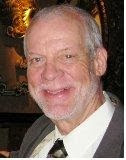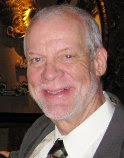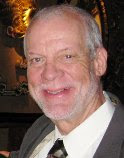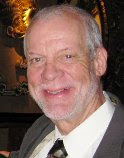The late Senator from New York, Daniel Patrick Moynihan, is famously quoted for saying, “Everyone is entitled to their own opinion but not their own facts”.
Thomas Jefferson has written, ““Shake off all the fears of servile prejudices, under which weak minds are servilely crouched. Fix reason firmly in her seat, and call on her tribunal for every fact, every opinion. Question with boldness even the existence of a God; because, if there be one, he must more approve of the homage of reason than that of blindfolded fear.”
It seems to me that there are two means by which people at various times arrive at an understanding of their world. One is to reason to a conclusion via the assimilation of all the facts that one can gather and so putting them together as to minimize dissonance. The other is to begin with the conclusion that one wishes to draw, whether in the service of faith or mere prejudice, and sifting and sorting through the facts, picking and choosing so as to not disturb the forgone conclusion.
If I were to paint with a broad enough brush, I could slather one political party with the hue of the former and the other party with the latter. I won’t tell you which is which because that would be to deny me the opportunity to put my theory of how people arrive at their understanding of the world to the test. But allow me, rather, to tell you why I feel that the fact-based means of rationalization is far the better one.
There are two kinds of truth. There is absolute truth and there is revealed truth. If we are to assume that truth matters, then it is important how one arrives at the truth. Our society is almost equally fond of both means. Congressional hearings, legal proceedings, the scientific method, and child-rearing are all based upon finding out what is true and workable and following that path. It requires setting aside preconceived notions of how things work in order to find the truth. If something is revealed which belies what I believed to be true yesterday, then I must reject my old conceptions and accept the new—at least, until it, too, is shown to be erroneous.
On the other hand, if I have been taught to believe that there are certain truths which are forever unchanging, eternal, unequivocal, then what do I do when presented with powerful evidence of their falsehood? I must either claim that the new evidence is a lie from someone who is not to be trusted; admit that I have been fooled for, lo, these many years, at the risk of losing face; or ignore the contrary evidence and hope that it goes away. This is, admittedly, a very uncomfortable position to be in. In part, I blame fundamentalist religion, in all its varied forms, for putting people in this predicament.
When you have been reared to believe that even to question “divine truth” is to risk eternal hellfire, it tends to put a damper on open-mindedness. The problem I have with these folk is when their mindset is brought to bear upon the political realm, which, at least in the United States, is constitutionally designed to be free from such influences.
All this said, I do not wish to give the impression that I am devoid of any tendency to eschew truths revealed through mystical events. Though I am a “non-believer”, in the traditional sense of that term, I have recently been starkly reminded that there are events in our lives that I have a great deal of trouble getting my mind around.
A few weeks after my husband, Laurin, died, the minister at my church, First Unitarian Society of Denver, gave a sermon on mysticism. It was about being open to the idea of things going on in the world around us that simply have no logical explanation and how that sensibility can make life easier to deal with, if not more interesting or joyful. That very night, I awoke around 2 AM, as I often did, needing to take relieve myself. Once back in bed, my mind, as it often did, began mulling over myriad things going on in my life. Still awake at 3:30, I realized that I needed to pee again. I got up, walked to the bathroom, and sat on the commode. From that vantage point, I can see my bed silhouetted against the east window. I noticed nothing peculiar. Upon returning to bed, I saw, lying on the bottom sheet where the covers had been thrown back, two facial tissues lying perfectly folded and flat, one slightly overlapping the other. They looked as if they had been carefully pressed, not as if I had lain on them during the night. I was certain that they were not there the previous morning when I made the bed. I had not been crying during the night nor had any other use for a tissue.
I spent the next two hours agonizing over how those tissues got there. I did not believe in life after death. I did not believe in ghosts or spirits. Yet, there was no “factual” explanation for what I had discovered. My sobs were so loud, I’m almost sure my neighbor must have heard them. It took Shari and Michelle from the SAGE Caregiver Support group to help me realize that what I witnessed might have been a sign from Laurin that, after so many years of my taking care of him, now it was his turn.
Even now, five months to the day after Laurin’s passing, I cannot write these words without breaking down. I now can admit, without flinching, that, yes, there are facts–and facts matter. But there are also phantoms and shadows that invite us to become their friends. Suddenly, the world has become a place of true wonder.
© 23 March 2013
About the Author
I came to the beautiful state of Colorado out of my native Kansas by way of Michigan, the state where I married and I came to the beautiful state of Colorado out of my native Kansas by way of Michigan, the state where I married and had two children while working as an engineer for the Ford Motor Company. I was married to a wonderful woman for 26 happy years and suddenly realized that life was passing me by. I figured that I should make a change, as our offspring were basically on their own and I wasn’t getting any younger. Luckily, a very attractive and personable man just happened to be crossing my path at that time, so the change-over was both fortuitous and smooth. Soon after, I retired and we moved to Denver, my husband’s home town. He passed away after 13 blissful years together in October of 2012. I am left to find a new path to fulfillment. One possibility is through writing. Thank goodness, the SAGE Creative Writing Group was there to light the way.









